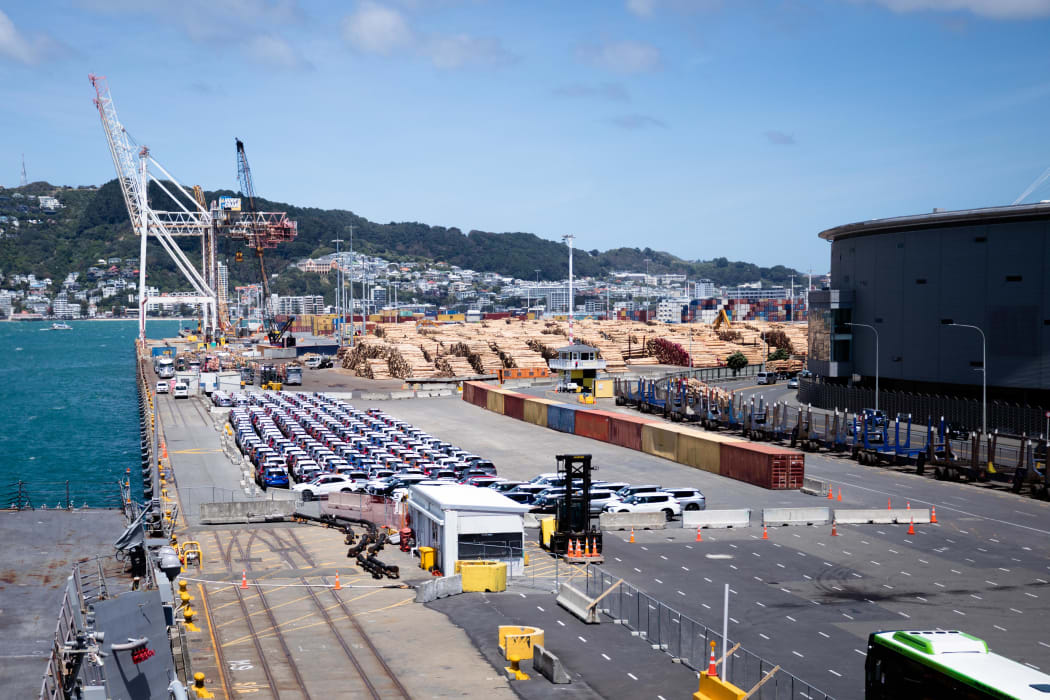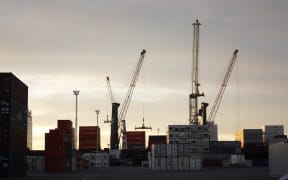International trade has bounced back from the pandemic, with strong growth over the past year.

Logs on the wharf at CentrePort Wellington before being loaded onto cargo ships (file photo). Photo: RNZ / Angus Dreaver
An annual Trade Trends & Insights publication for 2021 report by legal firm Chapman Tripp indicates global merchandise trade rose nearly 11 percent in 2021, after dropping 5.3 percent in 2020.
Trade had been supported by fiscal and monetary stimuli advanced by governments and central banks in all the major economies, the report said, but there were many challenges still to be met and the solutions in many cases remained elusive.
The World Trade Organisation continued to flounder with no clear pathway in prospect to address the concerns raised by the US and the ongoing broader need for reform, it said.
The postponement of the 12th biannual WTO Ministerial Conference because of the latest Covid-19 variant Omicron was not helpful.
The change of administration in the US had taken some of the heat out of the US-China dialogue but serious tensions remained, as did most of the Trump-era tariffs, it said.
"Hopes that President Biden might bring the US back into the Comprehensive and Progressive Trans-Pacific Partnership (CPTPP) tent seem likely to be disappointed."
A thaw in relations between New Zealand's third and first largest trading partner would be positive.
Another challenge for New Zealand was the need for greater disclosure about its response to global issues, including climate change, the growing pressure on natural resources and an increasing focus on the relief of poverty, gender equality, and indigenous and worker's rights.
The report noted modern slavery laws had been passed in several jurisdictions, including Australia, with New Zealand likely to follow.
"The Australian Modern Slavery Act captures businesses operating in Australia with consolidated revenues of more than AU$100m - which means that a number of New Zealand companies are caught."




